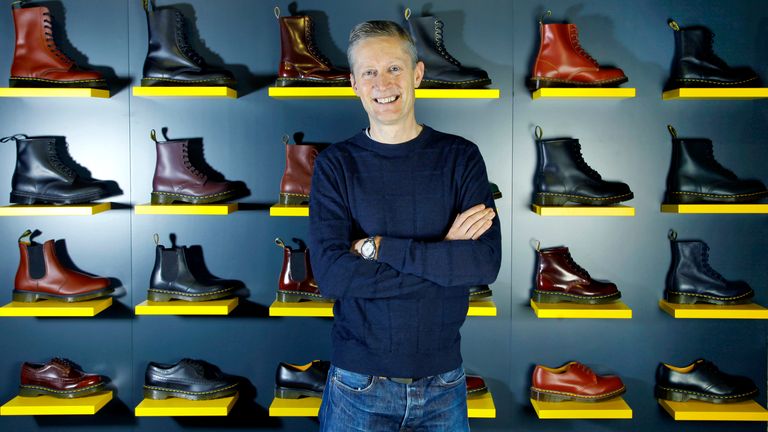Dr Martens treads towards London flotation but valuation is unclear

The British footwear brand Dr Martens has confirmed plans for a London flotation that will see its private equity owner sell down its stake.
The company, sold by the Griggs family in 2014 for £300m, said the stock market listing being considered would consist of a sale of shares held by Permira and some other existing investors.
Sky News revealed in November that Wall Street banks Goldman Sachs and Morgan Stanley had been appointed global coordinators of the blockbuster flotation.
Previous efforts to sell the business failed to attract offers that reached Permira’s valuation.
The brand has flourished under its control, reporting an average 20% to 30% revenue growth in recent years.
Dr Martens, whose boots have had spells in and out of fashion since they first went on sale in 1960, reported revenues of £672m in the year ending 31 March 2020 in its latest revival.
Sales were 18% up in the following six months to September despite the impact of the COVID-19 pandemic.
It sells in excess of 11 million pairs of footwear annually in more than 60 countries.
Under the plans revealed on Monday, there would be no sale of new shares in the IPO and there would be a free float of at least 25%.
That means at least a quarter of the company’s shares would be in the hands of public investors following the listing.
The potential value being sought was not disclosed.
Dr Martens currently has 130 stores and is aiming to expand its own retail operations as a large proportion of sales are made through concessions.
Kenny Wilson, its chief executive, wrote: “The announcement of our intention to float reflects the great achievements of the Dr Martens team and brand over the last seven years.
“Our iconic brand appeals to a diverse range of consumers around the world who wear our footwear to express their individual style.
“We have invested massively to ensure that we deliver the best digital and store experiences to connect with our wearers, and through this we are driving our long term, sustainable growth.”
Source: Read Full Article

